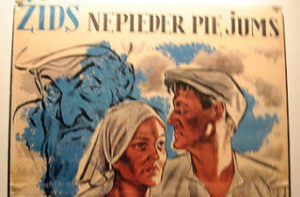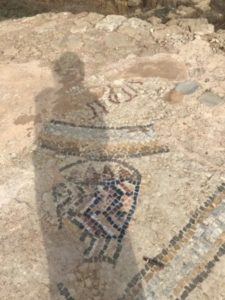In Matthew 6:19-34 we find Jesus expounding the heavenly philosophy regarding wealth and worldly possessions in his famous Sermon on the Mount. Yet, close examination of these verses presents a problem as verses 22-23 seem to be out of place.
V-22 “The light of the body is the eye:
if therefore thine eye be single (good),
thy whole body shall be full of light”.
V-23 “But if thine eye be evil,
thy whole body shall be full of darkness.
If therefore the light that is in thee be darkness,
How great is that darkness”?
It has traditionally been taught by many Bible teachers that Matthew 6:22-23 is addressing spiritual enlightenment. Yet a problem exists with this teaching as these verses are located between verses (19-21 & 24-34) that address the proper perspective to be exhibited toward wealth and the management of worldly possessions (finances). As such, verses 22-23 have presented a dilemma for bible students over the centuries. Did Matthew inadvertently mis-locate verses 22-23 in his writing or have bible translators inadvertently mistranslated these verses?
Actually, the latter is true. Matthew 6:22-23 has been misinterpreted by bible scholars and teachers for centuries due to poor understanding of Hebrew on the part of the translators. Even modern bible translations fail to properly interpret these verses correctly. Throughout the centuries bible translators have failed to recognize that Matthew 6:22-23 is written with Hebrew idioms and therefore cannot be translated literally. Failure to recognize this aspect has resulted in a poorly applied literal translation of the passage that has completely changed the intent of Jesus’ teaching and subsequently our understanding of his message.
To begin our exploration into the real meaning of this passage, the idioms will be addressed first. The true intent of verses 22-23 can actually be deciphered by the scriptures themselves. As is the case with the majority of his ministry, Jesus is paraphrasing and expounding Old Testament scripture in this teaching. If we examine the scriptures closely we find that Jesus is combining the usage of the Hebrew idiom “good eye” from Proverbs 22:9 and the usage of the idiom “evil eye” from Proverbs 28:22 into his instructions recorded in Matthew 6:22-23.
Proverbs 22:9
He that hath a good eye shall be blessed:
for he giveth of his bread to the poor.
Proverbs 28:22
He that hasteth to be rich hath an evil eye,
and considereth not that poverty shall come upon him.
By analyzing the referenced verses in Proverbs we can understand the meaning of the idioms “good eye” and “evil eye” by their usage in the context of their respective passages. In Hebrew to have a “bountiful or good eye” means to be kind, generous and charitable. The person that has a “good eye” is a generous person that is concerned with the welfare of others and gladly gives of himself for the betterment of mankind. According to Proverbs 22:9, the kind-hearted, charitable person shall be blessed and prosper because of his generous attitude.
On the other hand, to have an “evil eye” means to be selfish, greedy, and self-centered. The individual that possess an “evil eye” is a mean-spirited person that is selfish and self-absorbed. This type individual is driven by greed and is not concerned with the welfare of others. This is a hard-hearted person that does not share his possessions with the needy or if he does share does so grudgingly with ulterior motives. According to Proverbs 28:22, the self-absorbed individual that is driven by greed shall fail in his quest to become affluent (in spiritual matters).
Once we realize that Matthew 6:22-23 is written with idioms and then understand the meaning of the respective idioms, the general idea of the passage begins to take shape and its placement with verses pertaining to wealth and finances makes complete sense. Perhaps a better translation of Matthew 6:22-23 into modern English might be as follows:
V-22 A generous person that is concerned with the welfare of others and shares his finances (good eye) will have a bright and happy countenance (spirit).
V-23 In contrast, the greedy, self-centered person that withholds his finances from the needy (evil eye) is consumed with himself and possesses a dull, lifeless countenance (spirit). How dull and lifeless is the person that is totally absorbed with himself?
Recognition of Hebrew idioms can greatly enhance our understanding of God’s Holy Word and His instructions and guidance for a happy fulfilling life.




